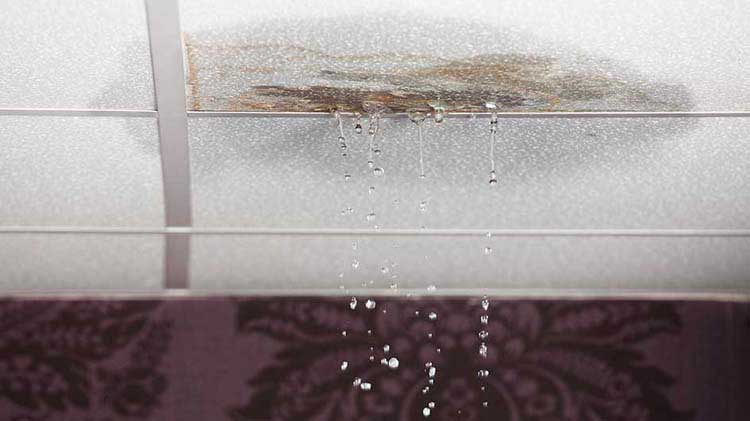Your Residential Most Common Leak Factors: Analysis
Your Residential Most Common Leak Factors: Analysis
Blog Article
Were you interested in insight around Most Common Causes of Leaky Pipes?

Leakages not only cause waste of water yet can additionally trigger unneeded damages to your house as well as promote unwanted natural growth. By looking and also comprehending for day-to-day circumstances that create leaks, you can secure your residence from future leakages and unnecessary damage.
Immediate temperature adjustments.
Severe temperature level modifications in our pipes can cause them to expand and acquire all of a sudden. This expansion and contraction might cause cracks in the pipes, particularly if the temperature are below freezing.
Rusty water systems
This may be the cause of discoloration or bending on your water pipes. If our plumbing system is old, take into consideration changing the pipes given that they are at a higher threat of rust than the more recent models.
Faulty Pipeline Joints
The point at which your pipes attach is regularly the weakest web link in the waterline. Pipe joints can deteriorate in time, resulting in water leaks. However, the majority of pipe joints are not quickly noticeable. If you have noisy pipes that make ticking or banging sounds, specifically when the warm water is activated, your pipeline joints are probably under a great deal of stress. It is suggested to have your plumber check your system once a year.
Encroaching roots
A lot of water leaks start outside the house instead than inside it. You might notice wet patches or sinkholes in your yard, and also that might mean that tree roots are attacking water lines causing water to leak out.
Poor Water Connectors
Sometimes, a leak can be brought on by loose hoses and pipes that supply your home appliances. Most of the time, moving is what creates the loose water Connections. You might find when it comes to a cleaning equipment, a hose pipe may spring a leak as a result of shaking during the spin cycle. In case of a water links leakage, you may discover water running directly from the supply line or puddles around your appliances.
Blocked Drains
Obstructed drains may be aggravating as well as inconveniencing, but they can often wind up causing an overflow resulting in break pipelines. Maintain removing any kind of materials that may drop your drains that might clog them to prevent such aggravations.
All the above are reasons for leakages but not all water leaks result from plumbing leaks; some leakages might come from roofing leaks. All leaks ought to be repaired quickly to stay clear of water damages.
Leakages not only cause waste of water but can also cause unnecessary damage to your home and advertise undesirable organic development. By recognizing as well as looking for daily situations that create leaks, you can protect your residence from future leaks and also unnecessary damages. Today, we will look at six leakage triggers that might be causing your pipelines to drip.
At times, a leak can be created by loosened hoses and pipelines that supply your appliances. In situation of a water links leak, you might discover water running directly from the supply line or pools around your appliances.
How To Check For Water Leak In Your Home
How To Check for Leaks
The average household's leaks can account for nearly 10,000 gallons of water wasted every year and ten percent of homes have leaks that waste 90 gallons or more per day. Common types of leaks found in the home are worn toilet flappers, dripping faucets, and other leaking valves. These types of leaks are often easy to fix, requiring only a few tools and hardware that can pay for themselves in water savings. Fixing easily corrected household water leaks can save homeowners about 10 percent on their water bills.
To check for leaks in your home, you first need to determine whether you're wasting water and then identify the source of the leak. Here are some tips for finding leaks:
Take a look at your water usage during a colder month, such as January or February. If a family of four exceeds 12,000 gallons per month, there are serious leaks.
Check your water meter before and after a two-hour period when no water is being used. If the meter changes at all, you probably have a leak.
Identify toilet leaks by placing a drop of food coloring in the toilet tank. If any color shows up in the bowl after 10 minutes, you have a leak. (Be sure to flush immediately after the experiment to avoid staining the tank.)
Examine faucet gaskets and pipe fittings for any water on the outside of the pipe to check for surface leaks.
Undetected water leaks can happen without the home or business owner even realizing. If you suspect a water leak, but not able to find the source. It is time to contact a professional water leak detection service, The Leak Doctor.
How To Find a Water Leak In Your Home
https://www.leakdoctor.com/blog/How-To-Check-For-Water-Leak-In-Your-Home_AE197.html

We were made aware of that editorial about Top Causes of Home Water Leaks from an associate on another web property. Are you aware of somebody else who is very much interested in the subject? Why not promote it. We love reading our article about How to detect water leaks in your home.
Overflow? Seek assistance. Report this page